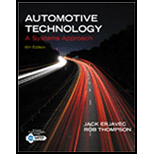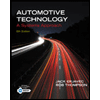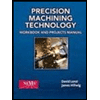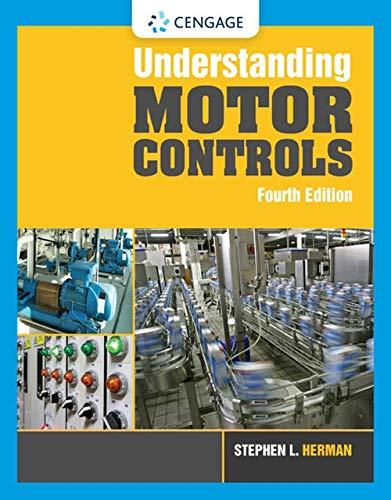
Automotive Technology: A Systems Approach - With Manual and Access
6th Edition
ISBN: 9781305513235
Author: ERJAVEC
Publisher: Cengage
expand_more
expand_more
format_list_bulleted
Concept explainers
Textbook Question
Chapter 24, Problem 1RQ
Describe the difference between an open- and a closed-loop operation.
Expert Solution & Answer
To determine
The difference between an open- and a closed-loop operation.
Answer to Problem 1RQ
Closed-loop operations work on the principle of feedback. The output from the current operation is used to modify the input for the next operation. The open-loop operation works only on the input. There is no feedback for this open-loop operations.
Explanation of Solution
Some of the significant differences between an open- and a closed-loop operation are as follows:
| Closed-loop operation | Open-loop operation |
| Its basis is the output of the current operation. The feedback from the current output is used to modify the input. | Does not have any feedback system. It completely works on the input. |
| Less stable. | Mostly stables. |
| Overall cost is high. | Overall cost is low. |
| Easy to calibrate. | Difficult to calibrate. |
| Examples are refrigerator, Air conditioner, toaster, etc. | Examples are automatic washing machine, Traffic light, TV remote, etc. |
| The structure of closed-loop operations are complex and so they are difficult to be implemented. | The structure of open-loop operations are simple and so they are easy to be implemented. |
Conclusion:
Closed-loop operation works on the feedback i.e. its basis is the output whereas open-loop operation is completely based on the input.
Want to see more full solutions like this?
Subscribe now to access step-by-step solutions to millions of textbook problems written by subject matter experts!
Students have asked these similar questions
using the theorem of three moments, find all the moments, I need concise calculations only
Practise question need help on
Can you show explaination and working. The answer from the text book is Q=5.03 X 10^-3
Chapter 24 Solutions
Automotive Technology: A Systems Approach - With Manual and Access
Ch. 24 - Describe the difference between an open- and a...Ch. 24 - Explain the use and importance of system strategy...Ch. 24 - Describe an OBD II warm-up cycle.Ch. 24 - Explain the trip and drive cycle in an OBD II...Ch. 24 - Describe how engine misfire is detected in an OBD...Ch. 24 - Describe the purpose of having both upstream and...Ch. 24 - Briefly describe the monitors in an OBD II system.Ch. 24 - Type B engine misfires are excessive if the...Ch. 24 - The monitor system checks the action of the can...Ch. 24 - The monitor system has a(n) and test to check the...
Ch. 24 - The fuel monitor checks fuel trim and fuel trim.Ch. 24 - Which sensor is used for misfire monitoring on OBD...Ch. 24 - Which of the following statements is not true?...Ch. 24 - A computer is capable of doing all of the...Ch. 24 - Which of the following memory circuits is used to...Ch. 24 - Technician A says that the oxygen sensor provides...Ch. 24 - While discussing OBD II systems: Technician A says...Ch. 24 - While discussing the catalyst efficiency monitor:...Ch. 24 - While discussing monitoring systems: Technician A...Ch. 24 - While discussing the comprehensive monitoring...Ch. 24 - Prob. 6ASRQCh. 24 - While discussing diagnostic procedures: Technician...Ch. 24 - Technician A says that the enable criteria are the...Ch. 24 - While discussing PCM monitor tests: Technician A...Ch. 24 - While discussing the misfire monitor: Technician A...
Knowledge Booster
Learn more about
Need a deep-dive on the concept behind this application? Look no further. Learn more about this topic, mechanical-engineering and related others by exploring similar questions and additional content below.Similar questions
- practise questionarrow_forwardCan you provide steps and an explaination on how the height value to calculate the Pressure at point B is (-5-3.5) and the solution is 86.4kPa.arrow_forwardPROBLEM 3.46 The solid cylindrical rod BC of length L = 600 mm is attached to the rigid lever AB of length a = 380 mm and to the support at C. When a 500 N force P is applied at A, design specifications require that the displacement of A not exceed 25 mm when a 500 N force P is applied at A For the material indicated determine the required diameter of the rod. Aluminium: Tall = 65 MPa, G = 27 GPa. Aarrow_forward
- Find the equivalent mass of the rocker arm assembly with respect to the x coordinate. k₁ mi m2 k₁arrow_forward2. Figure below shows a U-tube manometer open at both ends and containing a column of liquid mercury of length l and specific weight y. Considering a small displacement x of the manometer meniscus from its equilibrium position (or datum), determine the equivalent spring constant associated with the restoring force. Datum Area, Aarrow_forward1. The consequences of a head-on collision of two automobiles can be studied by considering the impact of the automobile on a barrier, as shown in figure below. Construct a mathematical model (i.e., draw the diagram) by considering the masses of the automobile body, engine, transmission, and suspension and the elasticity of the bumpers, radiator, sheet metal body, driveline, and engine mounts.arrow_forward
- 3.) 15.40 – Collar B moves up at constant velocity vB = 1.5 m/s. Rod AB has length = 1.2 m. The incline is at angle = 25°. Compute an expression for the angular velocity of rod AB, ė and the velocity of end A of the rod (✓✓) as a function of v₂,1,0,0. Then compute numerical answers for ȧ & y_ with 0 = 50°.arrow_forward2.) 15.12 The assembly shown consists of the straight rod ABC which passes through and is welded to the grectangular plate DEFH. The assembly rotates about the axis AC with a constant angular velocity of 9 rad/s. Knowing that the motion when viewed from C is counterclockwise, determine the velocity and acceleration of corner F.arrow_forward500 Q3: The attachment shown in Fig.3 is made of 1040 HR. The static force is 30 kN. Specify the weldment (give the pattern, electrode number, type of weld, length of weld, and leg size). Fig. 3 All dimension in mm 30 kN 100 (10 Marks)arrow_forward
- (read image) (answer given)arrow_forwardA cylinder and a disk are used as pulleys, as shown in the figure. Using the data given in the figure, if a body of mass m = 3 kg is released from rest after falling a height h 1.5 m, find: a) The velocity of the body. b) The angular velocity of the disk. c) The number of revolutions the cylinder has made. T₁ F Rd = 0.2 m md = 2 kg T T₂1 Rc = 0.4 m mc = 5 kg ☐ m = 3 kgarrow_forward(read image) (answer given)arrow_forward
arrow_back_ios
SEE MORE QUESTIONS
arrow_forward_ios
Recommended textbooks for you
 Automotive Technology: A Systems Approach (MindTa...Mechanical EngineeringISBN:9781133612315Author:Jack Erjavec, Rob ThompsonPublisher:Cengage Learning
Automotive Technology: A Systems Approach (MindTa...Mechanical EngineeringISBN:9781133612315Author:Jack Erjavec, Rob ThompsonPublisher:Cengage Learning Precision Machining Technology (MindTap Course Li...Mechanical EngineeringISBN:9781285444543Author:Peter J. Hoffman, Eric S. Hopewell, Brian JanesPublisher:Cengage Learning
Precision Machining Technology (MindTap Course Li...Mechanical EngineeringISBN:9781285444543Author:Peter J. Hoffman, Eric S. Hopewell, Brian JanesPublisher:Cengage Learning Understanding Motor ControlsMechanical EngineeringISBN:9781337798686Author:Stephen L. HermanPublisher:Delmar Cengage Learning
Understanding Motor ControlsMechanical EngineeringISBN:9781337798686Author:Stephen L. HermanPublisher:Delmar Cengage Learning

Automotive Technology: A Systems Approach (MindTa...
Mechanical Engineering
ISBN:9781133612315
Author:Jack Erjavec, Rob Thompson
Publisher:Cengage Learning

Precision Machining Technology (MindTap Course Li...
Mechanical Engineering
ISBN:9781285444543
Author:Peter J. Hoffman, Eric S. Hopewell, Brian Janes
Publisher:Cengage Learning

Understanding Motor Controls
Mechanical Engineering
ISBN:9781337798686
Author:Stephen L. Herman
Publisher:Delmar Cengage Learning
The Robot Revolution: The New Age of Manufacturing | Moving Upstream; Author: Wall Street Journal;https://www.youtube.com/watch?v=HX6M4QunVmA;License: Standard Youtube License